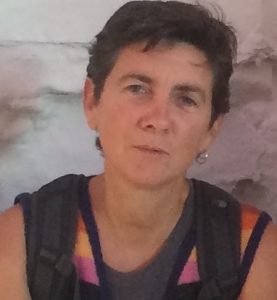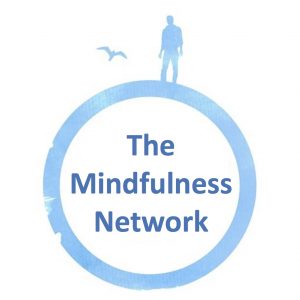
If Buddhism in the West becomes solely a means to pursue personal spiritual growth, I am apprehensive that it may evolve in a one-sided way and thus fulfil only half its potential. Attracting the affluent and the educated, it will provide a congenial home for the intellectual and cultural elite, but it will risk turning the quest for enlightenment into a private journey that, in the face of the immense suffering which daily hounds countless human lives, can present only a resigned quietism.
(Bhikkhu Bodhi, September 1, 2007)
 I have a working class background and although I have been very well supported within the mindfulness community, I also experience a continual, low-level discomfort because I do not fit into the prevailing cultural norm of being middle class. I am frequently and subtly reminded that I am different in both good and not so good ways. My directness is noted and described variously as a ‘breath of fresh air’ or ‘aggressive’ (‘diamond in the rock’, ‘salt of the earth’, ‘tough love’). Difference is noted.
I have a working class background and although I have been very well supported within the mindfulness community, I also experience a continual, low-level discomfort because I do not fit into the prevailing cultural norm of being middle class. I am frequently and subtly reminded that I am different in both good and not so good ways. My directness is noted and described variously as a ‘breath of fresh air’ or ‘aggressive’ (‘diamond in the rock’, ‘salt of the earth’, ‘tough love’). Difference is noted.
I attended some years ago now a conference held at Bangor University on the subject of diversity and inclusion in the mindfulness field. The assembly, as far as I could ascertain, was made up of Western, educated people from industrialised, rich, democratic countries (WEIRD – See Jayarava’s article The Problem of Class and Popular Buddhism). The gathering was predominantly white and professional middle class.
I recently attended a mindful self-compassion conference in the Netherlands. Again, I was struck by a lack of diversity not in terms of ethnicity or nationality, but in terms of class/privilege. Most attendees were highly-educated professionals with enough disposable income to pay the considerable cost of attending (£650.00 excluding travel fees). Though the word diversity was mentioned many times, there was no attempt to provide space to explore this important subject.
Like attracts like: making visible the mechanics of discrimination
The majority of mindfulness and dharma teachers, trainers and leaders in the field are white and middle class, but how has this come about? Generally, we tend to gravitate towards, and employ, people who reflect back our social standing and aspirations.
Those who make the decisions in any field (whether educational, occupational, intellectual, or artistic) resonate with and reward those whose cultural capital (taste in food, humour, media, clothes) is similar to their own. Conscious intention to discriminate by favouring one’s own class is not necessary for privilege to be perpetuated.
(Pierre Bourdieu quoted in Missing Class, Betsy Leondar-Wright, 2014)
We rely on visual and auditory information in order to sort out the people who are like us from those who aren’t. Betsy Leondar-Wright, who conducted the first comprehensive empirical study of U.S. activist class cultures found that working class activists talk differently to college-educated activists, e.g. in terms of wordiness, humour[1] and vocabulary. Professional middle class (PMC) groups used more abstract, organisational-based vocabulary while working class groups used more concrete political issues and operation details. There were also differences in how PMC and working class (WC) groups organised and approached problems.
Those from PMC backgrounds may find WC speech patterns and organisational approaches unfamiliar, while those from WC backgrounds may find a world dominated by PMC speech and organisational codes (including mindfulness organisations, courses and training) alien, difficult to understand, difficult to relate to, and difficult to access. This kind of research provides important and detailed information about how exclusion operates and how it can be addressed.
Having seen that there is a problem, what can we do about it?

There has been a tendency to try and solve class inequality by throwing money at the situation, and certainly reducing the cost of eight-week courses, the cost of teacher training, retreats and networking events would be a start. However, although we can do a number of things – including offering bursaries and other forms of financial support, ensuring greater access to courses and various events, and offering support to upcoming teachers from a diversity of backgrounds – this will not solve the problem.
True compassion is more than flinging a coin to a beggar; it comes to see that an edifice which produces beggars needs restructuring. (Martin Luther King Jr.)
We can take this opportunity to accept responsibility for the worlds we create by looking more deeply. At the micro level, we can explore our individual contribution to discrimination (developing our ability and willingness to examine our unconsciousness beliefs, habits and preferences). At the macro level, we can explore the accumulative consequences of personal practices, and the creation and maintenance of cultural and social institutions which house inequality and guarantee suffering.
We can keep sticking on plasters or we can go to the root. The revolution in awareness that is gaining momentum now requires that we examine the social structures that have arisen from (and continue to maintain) fear, hatred and suffering. It seems to me that my patterns don’t change if I don’t bring them into consciousness, if I don’t work with them on a moment-to-moment basis. Rather than thinking through the issue of class (just reading an article or two), I need to see, to hear, and to feel what inequality means in my body and heart. Proximity to suffering transforms.
How do we work with class-based inequality?
While we must keep talking about diversity within the mindfulness community, we must also act. We generally require a safe and dedicated space in which to look more deeply at matters that cause others and ourselves suffering. In this space, we can begin to understand the mechanics of exclusion, to hear each other’s voices and experiences, and to feel the consequences of separation.
We need to take care that the subject of diversity/inclusion doesn’t become a career opportunity only for those who already have status and the opportunities to give voice to their opinions and experiences. As well as what is said, it is also crucial to consider who is saying it and to what end. There is an opportunity here to give space to voices that are often unheard within a dominant culture.
I recently trained with Betsy Leondar-Wright who is a Senior Trainer for Class Action (https://classism.org), an organisation that inspires action to end class and extreme inequality by providing change-makers with tools, training and inspiration to raise awareness, shift cultural beliefs about social class, build cross-class solidarity, and transform institutions and systems.
Betsy’s work began when activists (mostly white/ middle class Americans) noticed an absence of working class people from activist/community meetings. The question arose, why aren’t there any working class people attending meetings? Betsy’s research set out to explore and address this question. Her findings, as well as the class action workshop, are pertinent to the questions currently being asked in the mindfulness world, why aren’t there more working class people involved in the mindfulness or dharma world? Why aren’t more working class/poor populations exploring mindfulness, especially given the considerable socio-economic as well as personal suffering they face?
There are many reasons why mindfulness has not reached down through the social strata. One of the reasons is that there are still very few working class role models in front-line positions in the mindfulness field or the dharma world. This is not an accident.
Understanding how privilege is maintained and how class-based inequality and exclusion operate will increase awareness and accessibility. This work will enable us to draw on the strengths that each class culture brings while ensuring that the teaching of mindfulness fulfils its ultimate potential to reach and liberate all, whatever their class background.
References
Betsy Leondar-Wright (2014) Missing Class: Strengthening Social Movement Groups by Seeing Class Cultures. Cornell University Press, NY.
Betsy Leondar-Wright (2005) Class Matters: Cross-Class Alliance Building for Middle-Class Activists. New Society Publishers, Canada. Class Awareness Facebook Page (resources and further reading)
https://www.facebook.com/Class-Awareness-UK-301866293726167/?modal=admin_todo_tour.
Jayarava (2015) The Problem of Class and Popular Buddhism, Jayarava’s Raves Blog.
Joshua Eaton (2011) Making Buddhism accessible to working-class people, Tricycle.
Bhikkhu Bodhi (2007) A Challenge to Buddhists. The Lions Roar.
[1] Working class majority groups laughed on average once every 8.75 minutes. Professional middle classes (PMC) majority groups laughed on average once every 15.71 minutes.
Colette is a Certified Mindful Self-Compassion teacher and supervisor, as well as a mindfulness teacher and trainer.
Colette is offering a one-day, CPD workshop, Missing Class, 11 October 2019 in London, which will explore class-based inequality.





9 comments on “Missing Class (by Colette Power)”
Laura Evans
October 18, 2018 at 9:50 amHi Colette this is a very interesting article. We spoke briefly about this recently on retreat. I too am from a working class background, my father being a miner in the South Wales valleys.
I work for a social prescribing project based largely in under privileged areas in South Wales.
We signpost patients to projects and the majority of them can’t afford or access classes for a variety of reasons.
When I completed breathworks 8 week course some years ago I couldn’t afford it and was lucky to have a funded place. I also had a grant for the first part of my training and my employer funded the second part. I couldn’t have afforded to pay for any of this.
I am in a position now to bring Breathworks to other working class people through my job and will begin doing this in January as a pilot project.
I feel this echoes what your article says and that now I am able to make mindfulness accessible to many other people. Thank you breathworks.
Colette
October 27, 2018 at 8:02 pmHi Laura,
good to hear from you and thanks for sharing your experience. I’m very glad to hear that you found the funding and support to complete your teacher training. It seems that a relatively small amount of investment in the form of bursary or support from employers can have a significant knock-on effect, not only for you but for many others who also cannot afford to pay to access mindfulness-based approaches.
I wish you all the very best with your work in South Wales.
Viv
November 15, 2018 at 8:37 amI’m really relieved to have found this blog (the link was sent to me twice in a week by different people so it needed to find me!).
Many thanks for sharing. I had been noticing who isn’t in these spaces (especially through working with people experiencing homelessness), and also in other ways where privilege is not always in awareness even in mindfulness circles.
There seems so much to talk about around the place where mindfulness/awareness and inclusion/representation and social engagement/social change meet? In my experience there doesn’t seem much open awareness and recognition of who is missing, and of where there is suffering and oppression in the world that we have collective power to change.
All the personal growth and healing will for sure have a positive impact in our world, but is there also some space for more external awareness, and action to change conditions when necessary?
I’m trying to connect with others in Manchester who this resonates for. It’s good to know you are nearby thinking of this too. Thanks for writing.
Colette Power
December 30, 2018 at 8:39 amHi Viv,
your comments really resonate. It seems to me that we project outward our inner conflicts, our sense of separation and then enshrine it within social structures such as class. This form of social patterning, of ‘othering’, causes suffering on a huge scale. I’ve often felt that being ‘political’ has been viewed as a somewhat vulgar distraction from the ‘real work’ of meditation or mindfulness. There is nothing wrong with being political. There is everything to gain from bringing awareness to systemic suffering and understanding how it works and how its maintained. I think it was Jack Kornfield who said that if you think that mindfulness or buddhism is not political you’ve missed the point! Colette
shad woolgrove
November 23, 2018 at 5:53 pmDear Colette
You have hit the nail on the head. I have been trying to get sponsorship in order to complete the MSC Teacher Training and Certification process. I have been offering free Mindfulness courses through the Library Service in Sheffield and intend to do the same for MSC courses. It’s not just class that excludes people, but finances too.
With much Metta
Shad
Colette Power
December 30, 2018 at 8:55 amHi Shad,
yes many people are excluded from the benefits of experiencing mindfulness and many people cannot train to teach because they cant afford to. Very often, its not ability that dictates who gets to teach but relative privilege or access to basic resources. The major mindfulness organisations are now providing bursaries which are hopefully extending access. My point though, is that while this is an essential development there is a greater prize here – and that is the opportunity to bring into awareness and to dismantle one of the social mechanisms which maintains separation and generates suffering on a grand scale.
Colette
Sally Brazier
May 1, 2019 at 3:44 pmThis is an interesting perspective I would like to add that using mindfulness in a clinical setting its benefits are particularly noted in a patient group that hear voices. This group is drawn predominantly from working class .
simon mcvay
May 21, 2019 at 6:16 pmIt’s really important that mindfulness becomes widely available to anyone who may benefit from it, irrespective of class or other differences and for that we need a wide variety of mindfulness teachers representative of all parts of society. In Ancient India there were the ‘84 Mahasiddhas’ who between them represented the full scope of differing ways of practicing meditation and experiences of awakening; from all castes and classes, male and female, rich and poor, highly educated or not, from scholars and religious leaders, craftspeople, monks and lay, to people who had been thieves and prostitutes. For example the highly accomplished scholar Naropa, took the homeless Tilopa as his teacher, and another scholar Saraha, took a female arrowsmith as his teacher.
Anne
May 30, 2019 at 7:12 pmI have experience of this within various buddhist groups within the UK…..